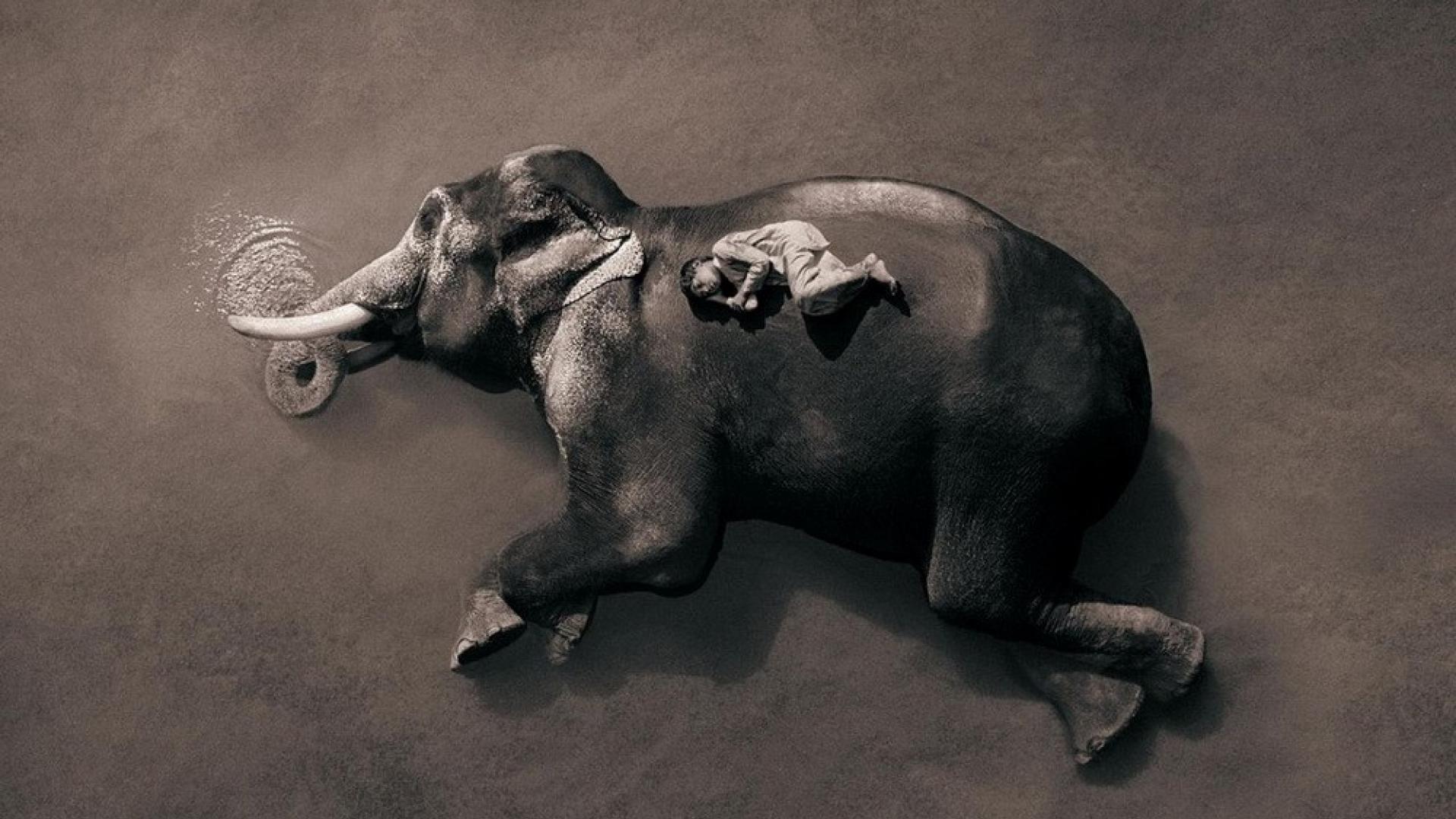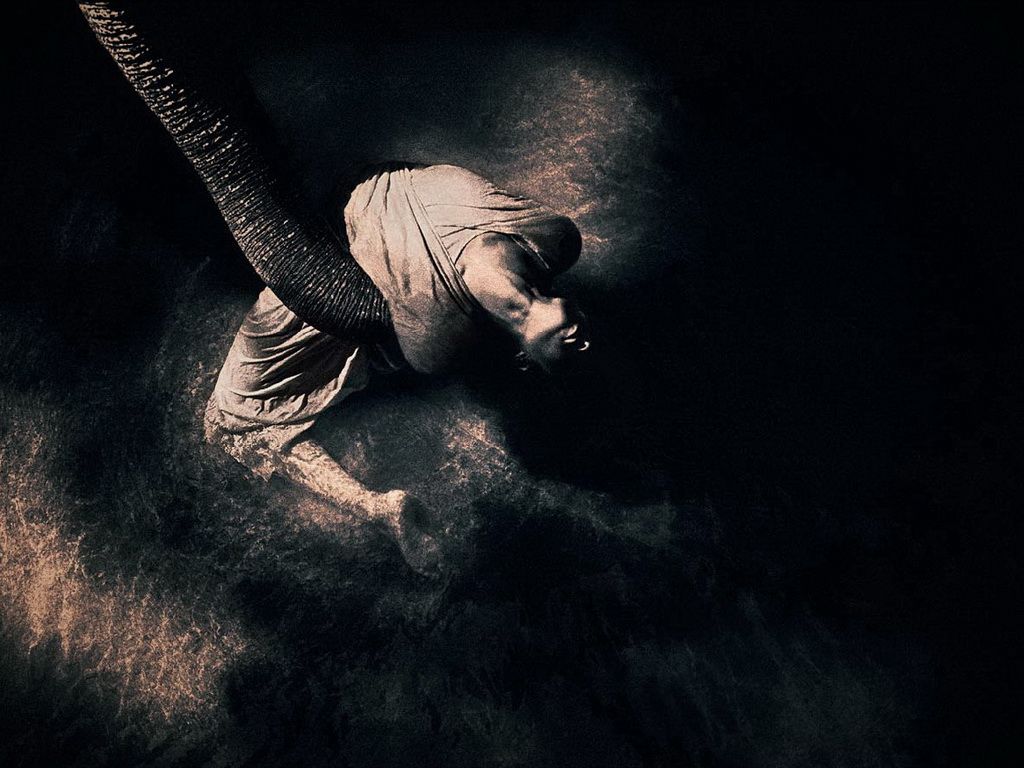Death Shall Be No More | The Truth About Hell, Eternal Torment, and Gehenna

ISRAEL’S HUMILIATING DEFEAT IN 722 BC was simply not enough for her captors. The king of Assyria pressed the brunt monarchic weight of his eyesight upon Judah. Within twenty years, 701 to be exact, his successor had conquered every fenced city of the southern kingdom—all but one. Sennacherib wanted Jerusalem. Hoping to appease his unquenchable appetite, Hezekiah king of Judah delivered ransom money—all the silver and the gold found in the temple of the LORD and from his own treasury. He even scraped the gold from every door post. Sennacherib accepted his payment, and then besieged Jerusalem anyhow.
When both parties sent out their negotiators, Hezekiah’s representatives pleaded with Rabshakeh, the Assyrian king’s chief aide, to converse in the Syrian language so as not to panic Jerusalem’s troubled inhabitants. But Rabshakeh was pompous and arrogant. In one of the most blasphemous speeches delivered anywhere within the pages of Holy Writ, Rabshakeh defiantly spoke in the language of the Jews so that everyone might have a chance to quiver within earshot. Isaiah records that he cried with a loud voice and said:
“Hear ye the words of the great king, the king of Assyria. Thus saith the king, Let not Hezekiah deceive you: for he shall not be able to deliver you. Neither let Hezekiah make you trust in the LORD, saying, The LORD will surely deliver us: this city shall not be delivered into the hand of the king of Assyria (Isaiah 36:14-15).”
The writer of Kings records of his longwinded speech.
“Who are they among all the gods of the countries—that have delivered their country out of mine hand, that the LORD should deliver Jerusalem out of mine hand? (2 Kings 18:35)”


According to Rabshakeh, if they would turn away from the LORD God of Israel, they might be carried away to live in a land of corn and wine, of bread and vineyards—basically, the land of his gods. But if they refused, they would eat their own dung and drink their own piss—and die.
Hezekiah was no Hoshea—the last king of neighboring Israel. Upon hearing his words, Judah’s king turned not to himself or any other foreign god for protection as his fathers had done, despite the immense pressure to likely do so from those within his fretting ranks. No, no—unlike Hoshea and the people under him, who “obeyed not the voice of the LORD their God…” (2 Kings 17:38), Hezekiah “did that which was right in the sight of the LORD, according to all that David his father did. He removed the high places, and brake the images, and cut down the groves, and brake in pieces the brazen serpent that Moses had made: for unto those days the children of Israel did burn incense to it: ad he called it Nehushtan. He trusted in the LORD God of Israel; so that after him was none like him among all the kings of Judah, nor any that were before him (2 Kings 19:4-5).”
Jerusalem was surrounded. But Rabshakeh was delusional. His overconfidence in the vocational superiority and cultural luxury of consciousness and of the prince of the power of the air who governs all manners of the self—essentially, the booby trap of the ages—was his ultimate undoing. In one of the grandest acts ever accomplished in Scripture by His serial line-up of saints, Hezekiah “rent his clothes, and covered himself with sackcloth, and went into the house of the LORD.” (Isaiah 37:1) He then sent for the prophet Isaiah. This, he told his dear friend, is a day of blasphemy.

The very night after Hezekiah had prayed the angel of the Lord went forth and smote the enemies of Judah in their camp. Senncherib king of Assyria fled the slaughter. While worshiping Nishroch in Ninevah, a likely deified rendering of history’s first recorded antichrist, Nimrod, and whom the medieval French rabbi Rashi believed to be a literal board from Noah’s ark—which, if true, only contributes to the spiritual perversions of this archetypal antichrist figure—his sons usurped his throne, and smote him with the sword. Once more, the spirit of Nimrod had been subdued. When King Hezekiah, Isaiah, and the inhabitants of Jerusalem awoke the following morning after the Lord’s had smitten on their behalf, they saw lying before them “a hundred and four score, and five thousand,” or 185,000 dead corpses of the Assyrians. Like Pharaoh’s hardened heart against the God of Israel centuries earlier, which prompted the total annihilation of Egypt’s army in the Red Sea, what Isaiah the Prophet witnessed was, without a doubt, one of God’s greatest interventions in human history.
And according to Isaiah, it will happen again—but on a much grander scale.
It is well noted that the Prophet who once joyously foretold of our Savior’s birth: “For unto us a child is born, unto us a son is given… (Isaiah 9:6)” and yet painted His ultimate purpose with the sorrowful strokes of a suffering servant: “He was wounded for our transgressions, He was bruised for our iniquities: the chastisement of our peace was upon him; and with His stripes we are healed… (Isaiah 53:5)”; who artfully penned our future glories when exhorting the wolf dwelling with the lamb, and the calf and the young lion and the fatling together, with a little child to lead them; paused his prophetic fore-longings in order to dabble in the literary genre of history—namely, King Hezekiah and the factual episode which he himself witnessed. He did not forget his monumental morning standing upon the walls of Jerusalem with his friend the king when he once more turned to the ink and pen of future prophecy:
“And they shall go forth, and look upon the carcasses of the men that have transgressed against me, for their worm shall not die, neither shall their fire be quenched, and they shall be an abhorring unto all flesh (Isaiah 66:24).”

Such is a fate, we are told, which awaits all wicked men—whomever has transgressed against the Lord. With this dazzling imagery—the carcasses of men among undying worms and unquenchable flames—the Prophet wet the final line of the scroll (or the 17 sheets of parchment which makes up its Dead Sea scroll counterpart) and concluded his book for the ages. And yet Isaiah 66:24 may be the most ignored Biblical passage concerning the final punishment. That is a rather odd thing considering Jesus quoted from it.
Isaiah has often been called “the evangelical prophet” because he says a great deal more regarding the coming of the Messiah and the redemptive work of Jesus than any other book of the Old Testament. It is certainly not a coincidence that Jesus in turn gazed back upon Isaiah with a—dare I say it—intimate familiarity, and conclusively quoted from him more than any other Prophet. He even incited Isaiah 56:7 while turning the tables in the temple. Our Lord said unto the moneychangers: “It is written, ‘My house shall be called the house of prayer; but ye have made it a den of thieves (Matthew 21:13).’”
Jesus once again borrowed from Isaiah when warning us that we never “offend one of these little ones that believe in me,” specifically claiming: “and if thy hand offend thee, cut it off: it is better for thee to enter into life maimed, than having two hands to go into hell, into the fire that never shall be quenched: where their worm dieth not, and the fire is not quenched (Mark 9:43-44).” When referring us to the worm that dieth not and the fire never quenched, we are often counseled with dark speeches for Biblical commentary. Indeed, speculative creeds have been placed upon and have even sought to embellish an idealized Greek underworld ever since He spoke these words rather than the Hebrew doctrine which Jesus was actually referencing and directing our attention to. Human tradition has created an unfortunate assembly line of church sermons produced from inferior products and error—namely, the Gospel according to Plato. More precisely, Jesus never actually said hell, nor was He directing us to its mythological Germanic origins. He clearly pronounced Gehenna. The underworld populated by the immortal soul, first propagated by and invented—for the most part—from the Greek philosopher and wildly imaginative poet Plato, is a world removed from the carcasses of men blazing within the Valley of Gehenna.
Hell, as we shall come to find, is globe talk.

Gehenna, or the Valley of Ben Hinnom, forms the southwest border of ancient Jerusalem. To this day it is a deep glen, shut in by rugged cliffs, with bleak rocky ridges rising over and above it, and stretches from the foot of Mount Zion rising above Jerusalem’s south-side to the Kidron Valley on her east-end, with the valley of the giants, or rather “the plain of Rephaim,” named after the ancient giants of the land, terminating its southwest border. Hinnom is generally regarded either as the name of an ancient hero (a giant, perchance?) or perhaps more importantly as an appellative to denote “groaning” or “moaning,” an appropriate bequeathing due to the fact that the droning cadence of drums could be heard here in Israel’s darkest hours, drowned out only by the rising cries from the sons and daughters offered to Moloch. Indeed, the Valley of Ben Hinnom was cursed real estate. A column of smoke endlessly rose above Gehenna during Jesus’ own lifetime, which no doubt served as a striking illustration to His ministry. It was reserved as a garbage dump where fires were kept burning, seemingly unquenched, to consume the refuse and, partnered with the maggots which feasted upon the rotting decay, eased the unholy melody of stench. We should not be surprised to learn it is also the location where the bodies of executed criminals, or those denied a proper burial, were dumped.
It is no secret that the Jews were obsessed with cleanliness. In fact, Jesus was even accused of not being clean enough—His crime, not washing His hands before dinner (Luke 11:38). Archeologists have only recently dug up alongside the slopes of the Kidron Valley Jerusalem’s massive landfill, which dates from early Roman times and may have been the most sophisticated trash collection system in antiquity. It appears to have been put to use for an estimated sum of seventy years, dating from our Saviors infancy until the Jewish revolt in 70 AD. For Jesus, the garbage heap for the ages was appropriated not only for rotting food, but human refuse. It is a literal picture of Jesus’ Davidic reign in Jerusalem. While the foolish bridesmaids “went to buy, the bridegroom came; and they that were ready went in with him to the marriage: and the door was shut (Matthew 25:10).”
Regarding the human refuse, Jesus said to the Pharisees:
“There shall be weeping and gnashing of teeth, when ye shall see Abraham, and Isaac, and Jacob, and all the prophets, in the kingdom of God, and you yourselves thrust out (Luke 13:28).”


Twice in Leviticus the Lord forbade the people of His covenant to deliver their children over to the flames of Moloch. In Leviticus 18:21 we read: “And thou shalt not let any of thy seed pass through the fire to Molech, neither shalt thou profane the name of thy God: I am the LORD.” The instructions couldn’t be any clearer. And yet the Prophet Jeremiah, written a hundred years or so after Isaiah, recorded that seed was indeed passed through the fire to Molech—and as a precise point of reference—in Gehenna. To this effect he writes:
“And they have built the high places of Tophet, which is in the valley of the son of Hinnom, to burn their sons and their daughters in the fire; which I commanded them not, neither came it into my heart (Jeremiah 7:31).”
Actually, Scripture records that Ahaz, Hezekiah’s father, being influenced by the very Assyrians who were hell-bent on conquering the world, “burnt incense in the valley of the son of Hinnom, and burn his children in the fire, after the abominations of the heathen (2 Chronicles 28:3).” This Isaiah would have personally observed, having received his vision concerning Judah and Jerusalem “in the days of Uzziah, Jotham, Ahaz, and Hezekiah (Isaiah 1:1).” Quite ironically Hezekiah’s son and successor Manasseh hated the God who preserved his kingdom against the Assyrians so much that he reinstated his grandfather’s religion and worse—he succeeded in surpassing his wickedness. Isaiah would not live to see it.
“And he made his son pass through the fire, and observed times, and used enchantments, and dealt with familiar spirits and wizards: he wrought much wickedness in the sight of the LORD, to provoke Him to anger (2 Kings 21:6).”
Let us not forget when Jesus compared Gehenna, perhaps even referencing a literal fulfillment, to Isaiah’s vision of a future judgement, which was no doubt based—in part through the inspiration of the Holy Spirit—on his own experiences during the Assyrian’s siege of Jerusalem, He was there. Our Savior is the Angel of the Lord who smote the 185,000 soldiers, laying their corpses for the eyes of Hezekiah and Isaiah to behold. Given further rumination, Isaiah references an actual future event, when the righteous will go out and look upon their enemies corpses, slain by the Lord on their behalf. Isaiah looks forward to the total destruction of their enemies—dead bodies, corpses, rather than living bodies in eternal torment.
And we should too.



Is this not what the Apostle John directs our attention to in Revelation? Satan, only recently loosed from prison, “shall go out to deceive the nations which are in the four quarters of the earth, Gog and Magog, to gather them together to battle: the number of whom is as the sand of the sea. And they went up on the breadth of the earth, and compassed the camp of the saints about, and the beloved city (Revelation 20:8-9a).” In Isaiah’s own time we can only attempt to imagine what jitters the inhabitants of Jerusalem must have overcome in order to gingerbread their faith with a king who, like David before him, is only a prototype of the Messiah to come. Though the Assyrians had conquered every walled city in Judah, Satan will encompass the entire world. Yet the saints of Jerusalem when Revelation chapter 20 unfolds will have the Messiah, crowned and seated upon David’s throne, to guard them when Satan speaks with all the boastful blasphemies of Rabshakeh—or was Rabshakeh really a mouthpiece for Satan?
Imagine the shock-and-awe spectacle then when, as John records: “fire came down from God out of heaven, and devoured them (Revelation 20:9b).”
The Prophet Jeremiah likewise records a similar event. He writes:
“…the slain of the Lord shall be at that day from one end of the earth even unto the other end of the earth: they shall not be lamented, neither gathered, nor buried; they shall be dung upon the ground (Jeremiah 25:33).”


Malachi, last of the Old Testaments Prophets, beautifully blended Isaiah’s animal parade—the lion and the calf with the wolf and the lamb, and the child leading them—with his and Jeremiah’s description of the final judgement when describing those, in contrast, who revere God in this present age and that hour to come. Expectation swells for the dawning day when God’s sons and daughters shall leap from the stall like frolicking calves as they rejoice in the rays of the Sun of righteousness. The minor prophet describes that dawning discovery like this:
“For, behold, the day cometh, that shall burn as an oven; and all the proud, yea, and all that do wickedly, shall be stubble: and the day that cometh shall burn them up, saith the Lord of hosts, that it shall leave them neither root nor branch. But unto you that fear my name shall the Sun of righteousness arise with healing in his wings; and ye shall go forth, and grow up as calves of the stall. And ye shall tread down the wicked; for they shall be ashes under the soles of your feet in the day that I shall do this, saith the Lord of hosts (Malachi 4:1-3).”
We must recognize the stunning difference between what the Prophets have spoken—and which Jesus our Lord referred us to—and the long lineage of darkened speeches which have filled our pulpits from the earliest of centuries until now. I myself have fallen into the web of tradition and taught what is contrary to His Word. The difference is stunning indeed between eternal punishment and eternal torment—an irrevocable destruction or unending destruction. However, our Lord, speaking in terms of destructive permanence and decisions irrevocable, said it like this:
“And fear not them which kill the body, but are not able to kill the soul: but rather fear him which is able to destroy both soul and body in hell (Matthew 10:28).”

There is a second death. But if Jesus warned of eternal permanence—once justly executed—it is only because the destruction is irrevocable. For this event, we must be prepared. We shall all witness its horrors, one way or another. And yet, after the human recluse is removed from His kingdom; after Satan is defeated and thrust with the beast and the false prophet into the Lake of Fire, “tormented day and night for ever and ever”; after the sons and daughters of God look upon the despair and the shame of their loved ones; corpses eaten by worms, as Isaiah would say; burned as stubble, in Malachi’s words; who are, as Jeremiah commands of them, neither gathered, nor buried, but remain as dung upon the ground; God shall wipe away all tears from the eyes of those who gaze upon their damnation, for death shall finally be no more, and the former things, which the righteous have longed to escape from (choosing to live for God’s future kingdom, even to the point of death, rather than to live in this present world), have finally passed. To this effect the Apostle John writes:
“God shall wipe away all tears from their eyes; and there shall be no more death, neither sorrow, nor crying, neither shall there be any more pain: for the former things are passed away (Revelation 21:14).”
The worst, and dare I say darkest night—though brilliantly and horrifically illuminated by the burning, tortured flesh of the wicked soul—is still to come. And yet, come morning, a beautiful horizon is promised before us. After the tears are wiped from our eyes, Isaiah’s animal parade can finally commence. The sons and daughters of God shall be as frolicking calves released upon the ashes of Gehenna. And just as importantly, Gehenna will be holy again—but this time forever.
Finally, the Prophet Jeremiah has written—and to this I say, Amen:
“And the whole valley of the dead bodies and of the ashes, and all the fields as far as the Brook Kidron, to the corner of the Horse Gate toward the east, shall be holy to the LORD. It shall not be plucked up or thrown down anymore forever (Jeremiah 31:38-40).”
Come Lord Jesus, come.
-Noel
